Politics
2027: Rotimi Amaechi’s Game Plan Revealed
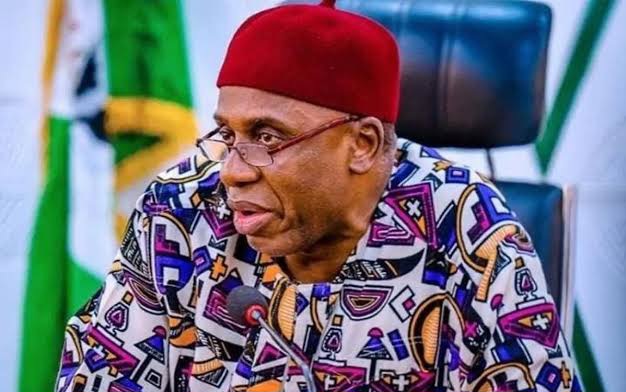
What City People Found Out
Since Wednesday, when he stormed Port Harcourt in a big way, many people have been wondering what Rt. Hon. Rotimi Amaechi’s plans are. We can tell you that his plan is to run for Presidency, on the platform of the ADC. He would also not mind if he is fielded as running mate to Alhaji Atiku Abubakar in the party.
For months, Rotimi Amaechi’s plan had revolved around his decision to leave the All Progressives Congress (APC) and join the African Democratic Congress (ADC) to challenge President Bola Tinubu’s re-election bid come 2027.
Weeks back, he officially resigned from the APC, citing the party’s direction and the government’s performance as reasons for his departure. He expressed dissatisfaction with the current administration, highlighting issues like extreme inflation, hunger, and widespread poverty.
He joined the ADC, which has become the platform for a coalition of opposition parties preparing for the 2027 general elections. He emphasized the need for a national movement that empowers ordinary Nigerians to take control of their country.
He vowed to stop Tinubu’s second-term bid, urging Nigerians to register with the ADC and work towards removing the current government. He emphasized the importance of a transparent, free, and fair primary process for the ADC’s presidential candidate.
He stated that the coalition leaders will support whoever emerges as the ADC’s presidential candidate, provided the selection process is credible. The coalition includes prominent figures like Atiku Abubakar, Peter Obi, and Nasir El-Rufai.
Amaechi plans to set up a Grassroots committee to mobilize support across Rivers State, encouraging citizens to register with the ADC and vote out the ruling APC in 2027. He also warned against electoral malpractice, particularly in Rivers State, where results are often “written” rather than counted.
The question many people are asking is whether he is still strong in Rivers, having been away for a while? Many political watchers think so?
Rotimi Amaechi’s strength in Rivers State seems to be reviving, particularly after his recent visit to the state as a member of the African Democratic Congress (ADC). Amaechi drew large crowds at the Port Harcourt International Airport, with supporters braving the rain to welcome him. This display of support indicates that he still has a significant following in the state.
He declared that the ADC has come to stay in Rivers State and has vowed to strengthen the party’s presence. He’s committed to ensuring free and fair elections in 2027, which could boost the party’s popularity.
He condemned the manipulation of election results in Rivers State and pledged to resist any attempts to undermine the will of the people in future elections. This stance may resonate with voters seeking transparent electoral processes.
He even challenged FCT Minister Nyesom Wike to a popularity walk in Port Harcourt, claiming he would prove his popularity without needing security presence.
However, it’s worth noting that Amaechi’s influence in Rivers State has been complex, with some accusing him of playing retrogressive politics and prioritizing personal interests over state development.
Rotimi Amaechi and Nyesom Wike, both former governors of Rivers State, have a strained relationship. Their falling out seems to have led to a series of public disagreements and accusations.
A few weeks back Wike accused Amaechi’s wife, Judith, of receiving N4 billion monthly from the Niger Delta Development Commission (NDDC) for empowerment programs, which Judith vehemently denied. She challenged Wike to publish the forensic audit report to substantiate his claims.
Amaechi and Wike frequently engage in public spats, with Amaechi describing Wike as a “child” and Wike retaliating that Amaechi won’t return to power.
Their disagreements seem to stem from their differing political views and ambitions.
Despite their current animosity, Wike has acknowledged that he risked his life to make Amaechi governor, suggesting they were once allies.
Their relationship has been marked by intense rivalry and public feuding, particularly given their shared history in Rivers politics.
But is ADC strong in Rivers? It is coming fast, says an analyst. “The African Democratic Congress (ADC) has been building its presence in Rivers State, particularly with the recent visit of Rotimi Amaechi, a prominent figure in the party. Here are some key points about ADC’s strength in Rivers State:
His visit drew large crowds, indicating significant support for the party in the state. The ADC has been working to strengthen its grassroots presence and mobilize citizens.
The ADC has declared its intention to create a formidable presence in Rivers State, with plans to conduct congresses and select delegates for a national convention.
The party has signed a Memorandum of understanding with groups like the Coalition for the Protection of Democracy (COPDEM), Justice Group, and Farmers Club of Africa, aiming to build a broader coalition and strengthen its base.
The ADC is positioning itself for the 2027 general elections, with leaders like Amaechi and Peter Obi joining the party to challenge the ruling All Progressives Congress (APC).
While the ADC has shown promise, its actual strength in Rivers State will depend on its ability to mobilize voters, build alliances, and deliver on its promises.
Can they mobilise the desired votes? The African Democratic Congress’s ability to mobilize voters hinges on several factors:
Some say, the party lacks a visible grassroots presence in key states, which hampers its ability to mobilize voters effectively. To overcome this, the ADC plans to conduct congresses and select delegates for a national convention, aiming to strengthen its grassroots presence.
The ADC’s leadership, including interim National Chairman David Mark, emphasizes building a robust ideological foundation and engaging citizens through a manifesto drive. This approach may help create a strong party structure.
The party’s candidate selection strategy, particularly the need to field a credible Northern candidate, is crucial for mobilizing voters across Nigeria’s diverse regions. Failure to do so may alienate significant portions of the electorate.
The ADC has gained momentum as a coalition platform for opposition leaders.
This coalition may help mobilize voters, but its success depends on unity and a clear vision.
The party has outlined plans to mobilize 35 million voters and promote policies like a $30 billion power generation initiative and value-added programs for agriculture and solid minerals. Rotimi Amaechi has also urged ADC members to mobilize grassroots support ahead of the 2027 general election.
What are the challenges ahead?
The ADC lacks clear party membership and institutional support, which is essential for mobilizing voters and winning elections.
Nigeria’s political arena is heavily influenced by regional and ethnic dynamics, making it crucial for the ADC to navigate these complexities effectively.
The party faces stiff competition from established parties like the APC, which has a strong base and significant resources.
Overall, the ADC’s ability to mobilize voters will depend on its capacity to build a strong grassroots presence, select a credible candidate, and navigate Nigeria’s complex regional dynamics.
Is Rotimi Amaechi well liked? His popularity is a mixed bag. On one hand, he has a significant following in Rivers State, as evident from the large crowds that welcomed him during his recent visit. His decision to join the African Democratic Congress (ADC) and challenge President Bola Tinubu’s re-election bid in 2027 has garnered support from some quarters. Amaechi’s stance against the current administration’s policies, which he believes have brought hardship to Nigerians, resonates with some people.
On the other hand, Amaechi faces criticism and skepticism from various groups. The Ohanaeze Ndigbo Youth Council Worldwide has condemned his recent comments about his Igbo heritage, calling him out for being inconsistent and opportunistic. Some people question his credibility and trustworthiness due to his willingness to adapt his stance for political gain.
His supporters see Amaechi as a champion of good governance and a strong leader who can bring about positive change.
His critics view him as a self-serving politician who prioritizes his interests over the needs of others.
Overall, opinions about Amaechi are divided, reflecting the complex nature of Nigerian politics and the diverse perspectives of its citizens.
Rotimi Amaechi is not Igbo by ethnicity. He is from Rivers State, which is located in the South-South geopolitical zone of Nigeria, and is part of the Ikwerre ethnic group. The Ikwerre people are an ethnic group native to Rivers State, and Amaechi’s background is rooted in this community.
He has a Northern title.
Rotimi Amaechi holds the traditional title of “Dan Amanar Daura,” which roughly translates to “the trusted one of Daura.” This title was conferred upon him by the Emir of Daura, Umar Farouq Umar, in recognition of his service to the nation and his contributions to the Transport sector. Amaechi’s new title is seen as a symbol of appreciation for his work, particularly in connecting the North through rail projects and his role in developing the University of Transport in Daura.
The title was conferred in February 2022 at the Emir’s palace in Daura.
This title strengthens Amaechi’s ties with the North and demonstrates the region’s appreciation for his efforts .
Amaechi’s relationship with the North is further underscored by his recent attendance at former President Muhammadu Buhari’s funeral in Daura, where he wore traditional attire fitting for his title. This gesture has sparked varied reactions, with some viewing it as a sign of respect and others as a political move.
Source:Citypeople
Politics
BREAKING: “Serial Disrespect” Sparks Drama As Senate Order Arrest Of Tinubu’s Appointee
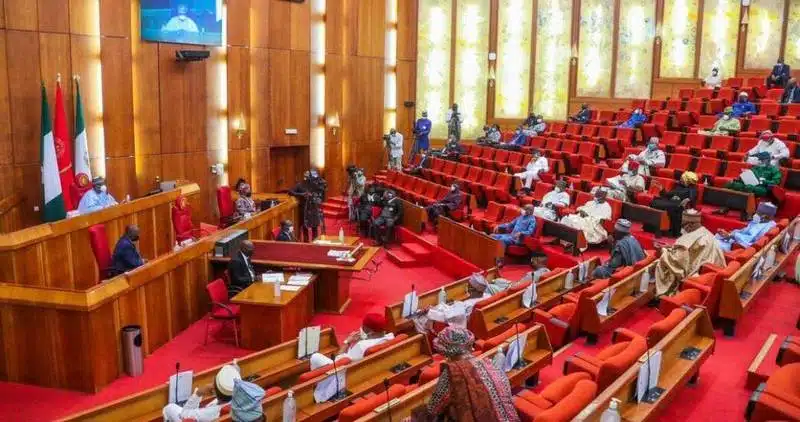
The Senate has asked President Bola Tinubu to immediately remove the Registrar General of the Corporate Affairs Commission (CAC), Hussaini Ishaq Magaji (SAN), from his office.
As reported by Nigerian Tribune, the Senate committee on finance, while passing a resolution in Abuja on Thursday, February 26, accused Magaji of failing to honour the upper legislative chamber’s invitations to account for the finances of his agency.
Senator Sani Musa, the chairman of the committee, said:
“He (Magaji) refused on so many occasions to honour our invitation to appear before this committee.
“We have issues with the reconciliation of the revenue of CAC.
“Each time we invite him, he gives us excuses.
” Magaji was appointed to this position by President Tinubu on October 13, 2023.
As the registrar-general of the CAC, Magaji is expected to work for the development and regulation of corporate affairs in Nigeria.
Meanwhile, President Tinubu on Wednesday night, February 25, formally urged the Senate to begin the process of amending the 1999 constitution to provide for the establishment of state police, declaring that Nigeria must urgently restructure its security architecture to confront terrorism, banditry and insurgency.
Speaking at an interfaith breaking of fast with the leadership and members of the Senate at the State House, Abuja, the president stated that the time had come for lawmakers to “start thinking” about embedding state policing in the constitution to enable governments at subnational levels better secure their territories.
The Nation quoted President Tinubu as saying:
“Nigeria is extremely challenged, we are facing terrorism, banditry, insurgency, but you never failed to make a right response to these calls.
“What I will ask for tonight is for you to start thinking how best to amend the Constitution to incorporate the state police for us to secure our country, take over our forests from marauders, free our children from fear.”
Politics
Opposition Leaders Urge N’Assembly To Begin Fresh Electoral Act Amendment
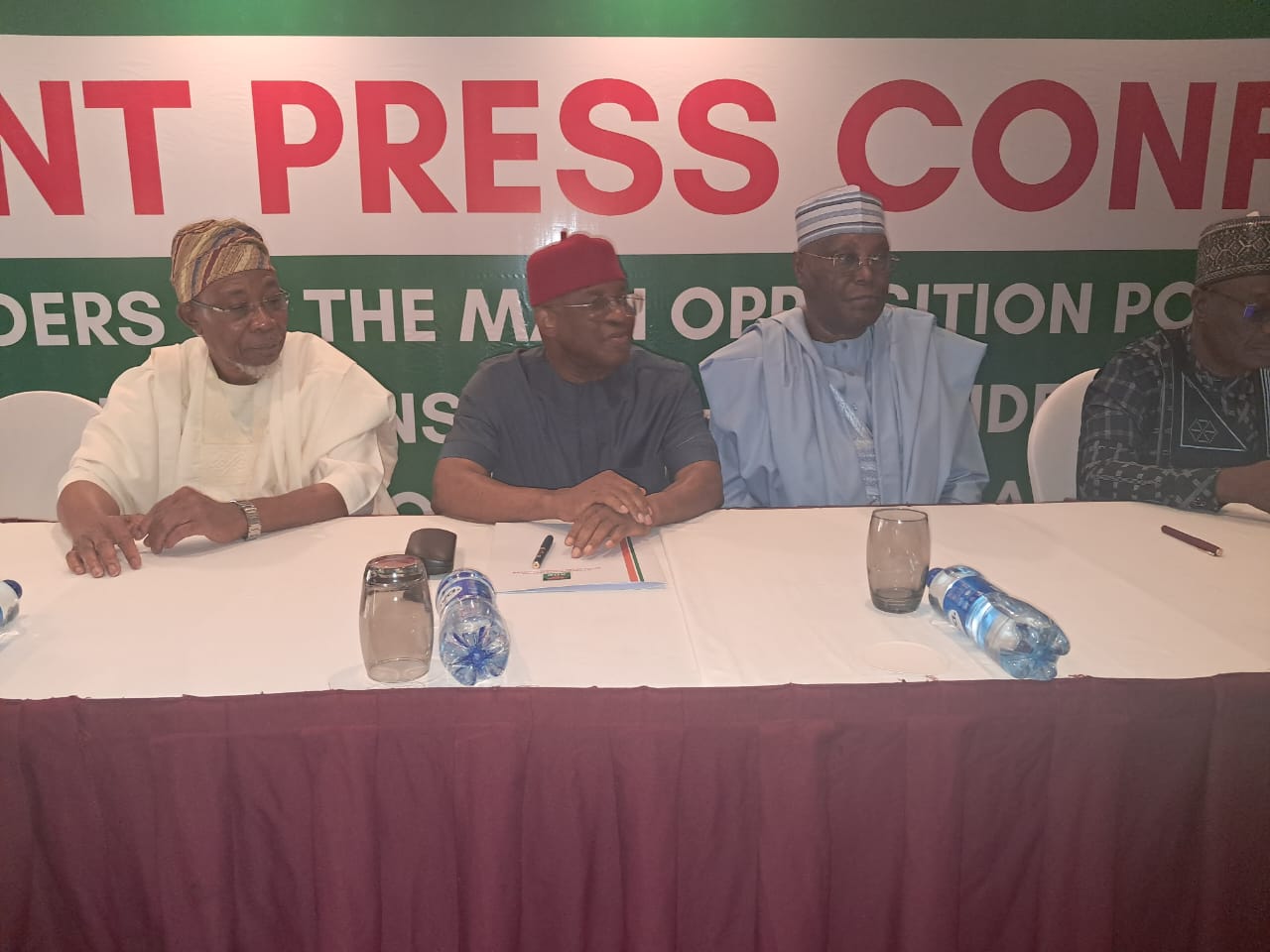
Leaders of the African Democratic Congress and the New Nigeria Peoples Party have called on the National Assembly to commence a fresh process to amend the Electoral Act.
Speaking on behalf of the opposition at a press conference in Abuja on Thursday, NNPP National Chairman, Ajuji Ahmed, urged federal lawmakers to expunge all objectionable provisions contained in the Act.
Prominent opposition figures at the meeting included former Senate President David Mark; NNPP chieftain Buba Galadima; former Vice-President Atiku Abubakar; and the 2023 presidential candidate of the Labour Party, Peter Obi.
Also in attendance at the Lagos/Osun Hall of Transcorp Hilton, Abuja, were the ADC National Secretary, Rauf Aregbesola; former Rivers State Governor Rotimi Amaechi; and the party’s National Publicity Secretary, Bolaji Abdullahi, alongside other stakeholders.
Others present included Senator Dino Melaye, former ADC National Chairman Ralph Nwosu, and former Cross River State Governor Liyel Imoke, among several dignitaries.
Politics
Assembly Confirms Popular Redeemed Pastor As Deputy Governor
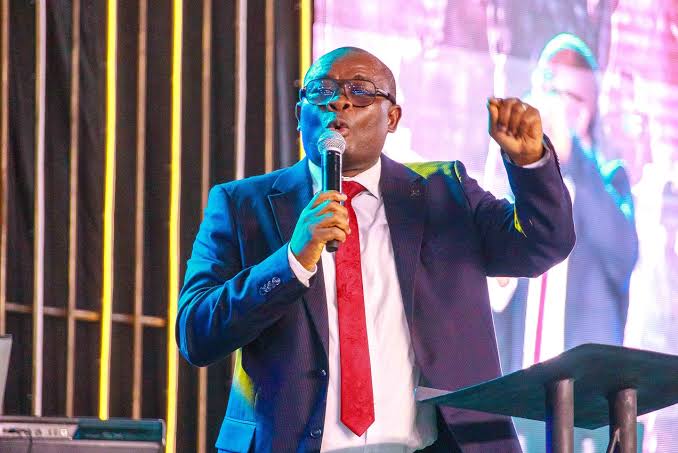
The Bayelsa state house of assembly has approved the appointment of Peter Akpe as the deputy governor of the state.
Akpe, a pastor, served as chief of staff to Douye Diri, governor of Bayelsa, prior to his nomination.
Ordained clergy by the Redeemed Christian Church of God (RCCG), Akpe has had a career spanning the civil service and politics.
He served in the Rivers and Bayelsa state civil services before transitioning fully into politics.
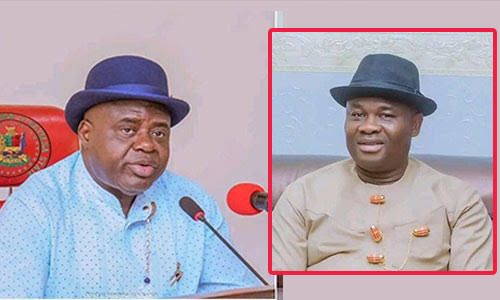
Akpe was a two-term member of the Bayelsa state house of assembly from 2011 to 2019, serving as majority leader throughout his stint in the legislature.
He also served as commissioner between 2008 and 2011 under the Seriake Dickson administration.
The approval clears the way for his swearing-in as deputy governor.
Akpe’s appointment follows the death of Lawrence Ewhrudjakpo, the former deputy governor, who passed on last December.
-

 Foreign2 days ago
Foreign2 days agoCabinet Reshuffle: President Sacks Finance Minister
-

 Business2 days ago
Business2 days agoJUST IN: 13 Banks May Shut Down In March As CBN Confirms 20 Safe For Recapitalisation Deadline
-

 Politics13 hours ago
Politics13 hours agoBREAKING: “Serial Disrespect” Sparks Drama As Senate Order Arrest Of Tinubu’s Appointee
-

 Politics13 hours ago
Politics13 hours agoOpposition Leaders Urge N’Assembly To Begin Fresh Electoral Act Amendment
-

 Opinion13 hours ago
Opinion13 hours agoEdo State To Spend N1billion On Armoured Car For Speaker, N4.6billion On Vehicles For Lawmakers




